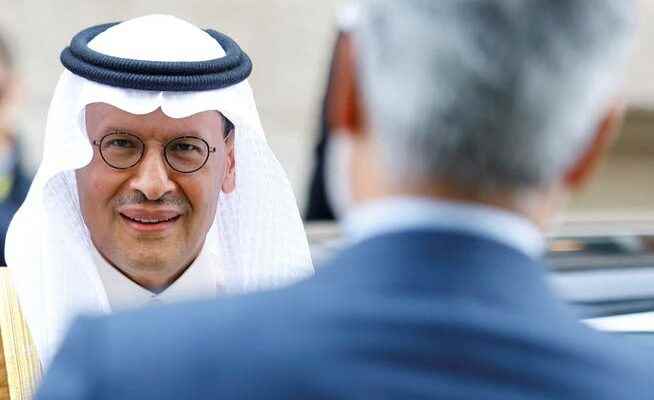In the midst of a politically motivated energy crisis, OPEC and other oil countries are cutting production. Saudi Arabia is siding with Russia and ignoring Washington’s wishes.
The oil ministers of the OPEC+ countries met face to face in Vienna for the first time in a long time. Saudi oil minister Abdulaziz bin Salman is the dominant figure.
No pleas or threats from the American side helped: the petrostates, known as Opec+, decided to cut oil production by 2 million barrels a day. This should boost the price of oil. That’s the biggest cut since 2020, when the listing was in freefall because of the pandemic. The meeting lasted just under half an hour, which also showed how well Saudi Arabia in particular had prepared the meeting. Along with Russia, the Kingdom is the dominant member in this group.
And that is a problem that was also revealed in the press conference. Russia uses energy as a weapon, it said in one question. Are you now collaborating with Moscow? Saudi Energy Minister Abdulaziz bin Salman replied, somewhat taken aback: “This is not an aggressive step.” At a time when the US and EU are trying to keep Russia’s income from the energy business as low as possible, this is a pipe dream. Washington responded immediately: “The President is disappointed by Opec+’s short-sighted decision.”
American rumble
In the case of American President Joe Biden, there is also concern about increased gas prices a month before the important midterm elections. High prices at the pump are generally not recommended choices in the USA. But more could break: Some commentators are already talking about a break in the decades-long alliance between Saudi Arabia and the United States. However, the Opec+ decision is also a sign that Biden and his staff have not found a connection to the rulers in Saudi Arabia and the United Arab Emirates.
The petrostates justify their actions with the fact that the situation of the world economy and the oil market is uncertain. Recession fears point to less demand and lower oil prices. At the same time, however, the offer is currently very exhausted. Saudi Arabia argues that it needs more spare capacity to respond to sudden demand. Higher prices would also stimulate necessary investments to expand the range.
Energy is also a weapon
The Saudi oil minister also pointed out that since the Russian war of aggression, the price of oil has risen much less than the quotations of other energy commodities. In the case of natural gas, the increase is also due to the fact that the Kremlin ruler Vladimir Putin has drawn the energy weapon. However, the petrostates are likely to come up against two actions by Western countries: Firstly, Washington is currently using the strategic oil reserve in order to lower the oil price.
Second, from December 5, no more Russian crude oil will be allowed to enter the EU by sea. In addition, the sea transport of crude oil and oil products from Russia should only be possible worldwide if the oil is bought below a certain price. The EU, together with the USA and other western allies, want to push this through because these countries dominate the insurance business and the operation of oil tankers. Russia should take less without Russian oil disappearing from the market. Moscow has already announced that it does not want to sell oil with a price cap. Other petrostates will not enjoy such a mechanism either.
However, Opec+ also has the problem that the cuts have to be larger on paper because some countries cannot meet their funding quota at all. It is all the more astonishing that Saudi Arabia wants to push up the price right now, when high inflation is dampening the global economy and Europe is also increasingly asking for heating oil to replace possible gas outages in winter. Riyadh unnecessarily throws down a gauntlet to the West.
You can contact business editor Gerald Hosp follow on twitter.
